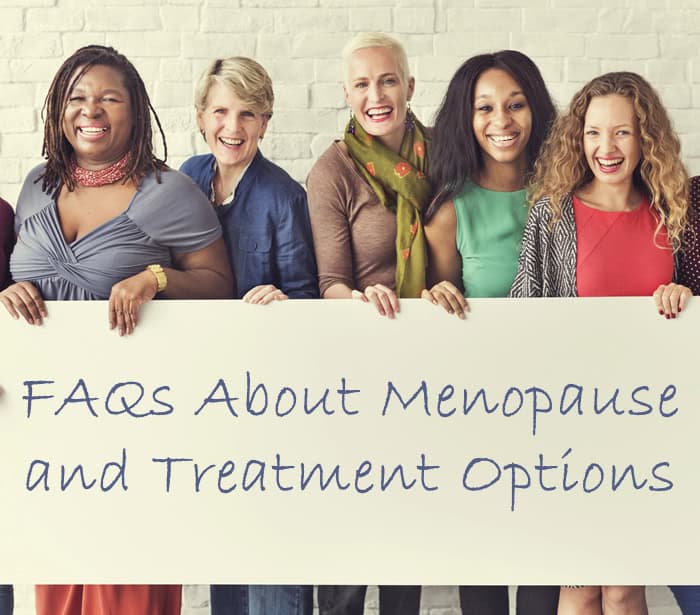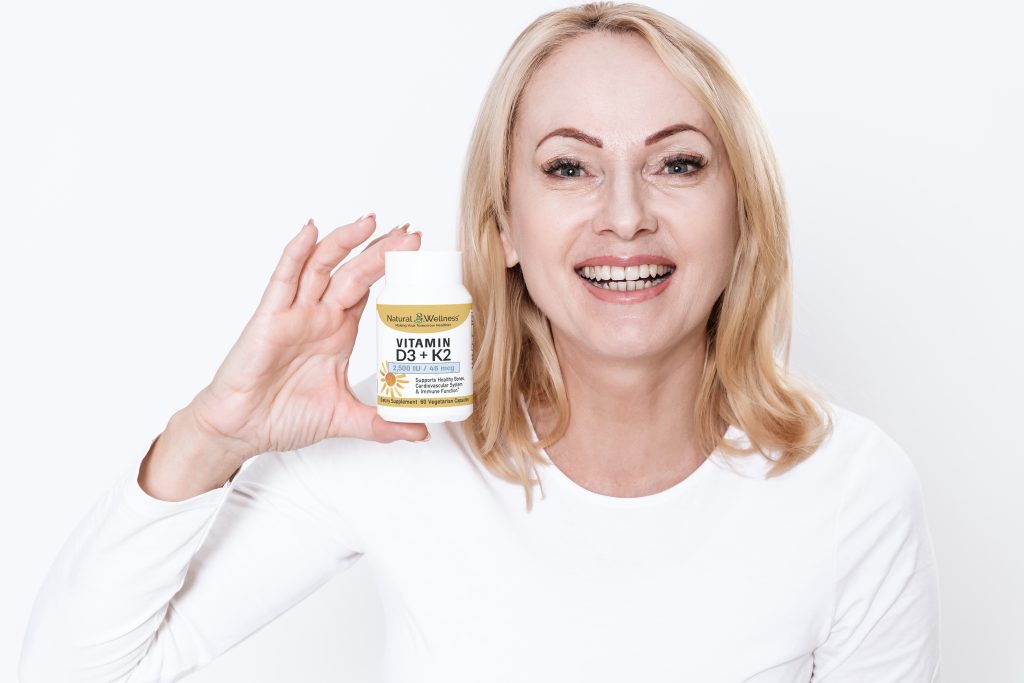

If you’re approaching menopause, you may be wondering what to expect. Since this is such a major stage in a woman’s life, it’s common to have a lot of questions – and the more you know the better you can prepare. With that goal in mind, here are answers to some of the most frequently asked questions, including which supplements may help with some of menopause’s effects.
What Is Menopause? (It May Not Be What You Think)
The term “menopause” is often used to describe the transition from having a period to not. However, menopause is technically defined as 12 months after your periods stop. Think of this process as occurring in stages. The stages of menopause are: (1)
- Perimenopause – the period before menopause, or the transition period
- Menopause – when you’ve gone 12 consecutive months without a period (which is more a point in time than an actual stage)
- Postmenopause – the period after going through menopause
What Exactly Happens During Menopause?
As the body enters menopause, the production of both estrogen and progesterone decreases. (2) Estrogen helps regulate menstruation and affects not only reproductive health, but also impacts the health of our muscles, bones, heart, and brain. (3) Progesterone also helps regulate menstruation, in addition to supporting pregnancy in the early stages. (4)
Other changes that occur during menopause are related to: (2)
- Energy usage
- Fat cell changes
- Bone health
- Heart health
- Body composition or shape
- Physical function
What Causes Menopause?
Generally, menopause occurs with age. Some things cause early menopause, which includes the removal of the uterus (hysterectomy) or ovaries (oophorectomy). Having ovaries that are underactive or inactive – which can be a result of cancer treatments, surgeries, or genetics – can also lead to menopause at an earlier age. (5)
What Age Does Menopause Start?
Most women start to transition toward menopause in their 40s, with the average age of menopause being 52. (1) Genetics plays a big role in when menopause occurs. (6) So, finding out when your mother or older female siblings entered menopause may give you a better idea of when you may do the same.
Some lifestyle factors can also influence the age at which menopause starts. For instance, studies have found that smokers have an increased risk of early menopause, both former and current. (7)
How Long Does Menopause Last?
For most women, the trek toward menopause lasts roughly seven years. (2) Some take more time to get through this phase; others take less. Unfortunately, there is no hard and fast answer as to how long menopause will last for you.
What Signals the End of Menopause?
Once you’ve gone 12 months without a period, you have officially reached menopause. After menopause occurs, you will remain in the postmenopause stage for the rest of your life.
How Do You Know You Are in Menopause?
The first sign is typically a change in your periods. (8). You may notice that you don’t have them as often or as regularly as you once did. When entering menopause, you might also experience a change in the heaviness or lightness of their flow. (8)
What Can I Expect in Terms of Menopause Symptoms?
In addition to period changes, other common menopause symptoms or effects of menopause include:
- Hot flashes and night sweats
- Bladder control issues
- Vaginal dryness
- Trouble sleeping
- Mood changes
- More intense PMS
If you experience weight gain, thinning hair, aches in your muscles or joints, trouble with memory, headaches, or a racing heart, these can also be signs of menopause as they are caused by changing hormone levels. (1)
Some women have mild menopause symptoms, while other’s symptoms are more severe. Race and ethnicity may play a role in this as, according to a June 2024 study involving nearly 69,000 women, Black, Hispanic, Indigenous, and Middle Eastern women reported more severe menopause symptoms than women who were White. (9)
What Are My Menopause Treatment Options?
Not everyone requires menopause treatment. However, if you’re struggling with the symptoms or effects of menopause, talk with your healthcare provider about your treatment options.
They may recommend hormone therapy, which involves taking hormones that your body is making less of to help reduce symptoms. They might also suggest non-hormonal treatment options, such as taking an antidepressant to reduce hot flashes. (10)
Certain dietary supplements may also help. For example, research indicates that taking a vitamin D supplement can improve bone density and normalize parathyroid hormones. (11)
Other studies have found that taking a fish oil supplement helped reduce menopause symptoms.
The main thing to remember is that you don’t have to try to “survive” menopause. There are things you can do to help reduce your symptoms as your body adjusts to the changing hormones, both medically and naturally, enabling you to pick the best route for you.





